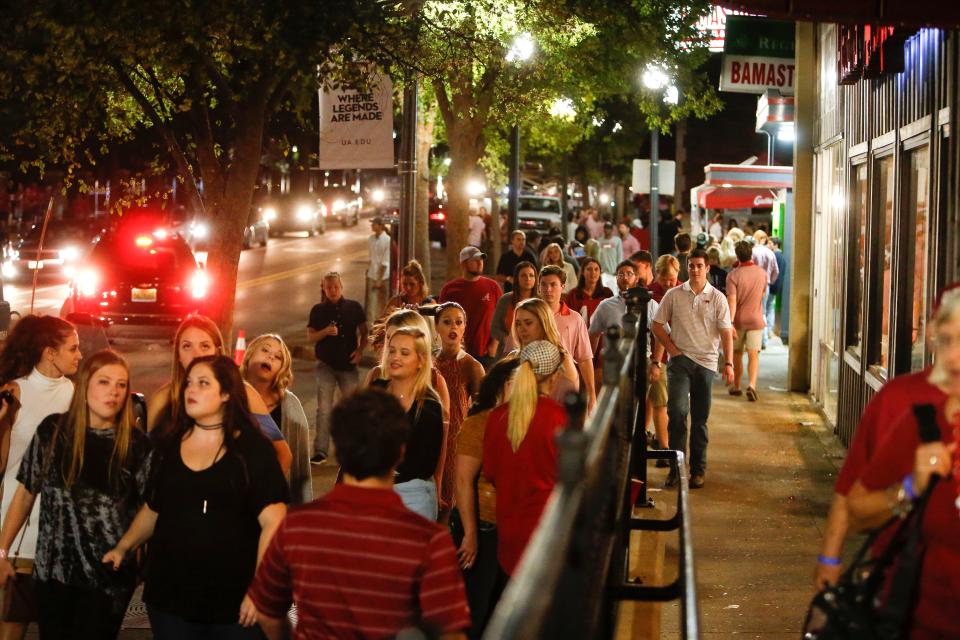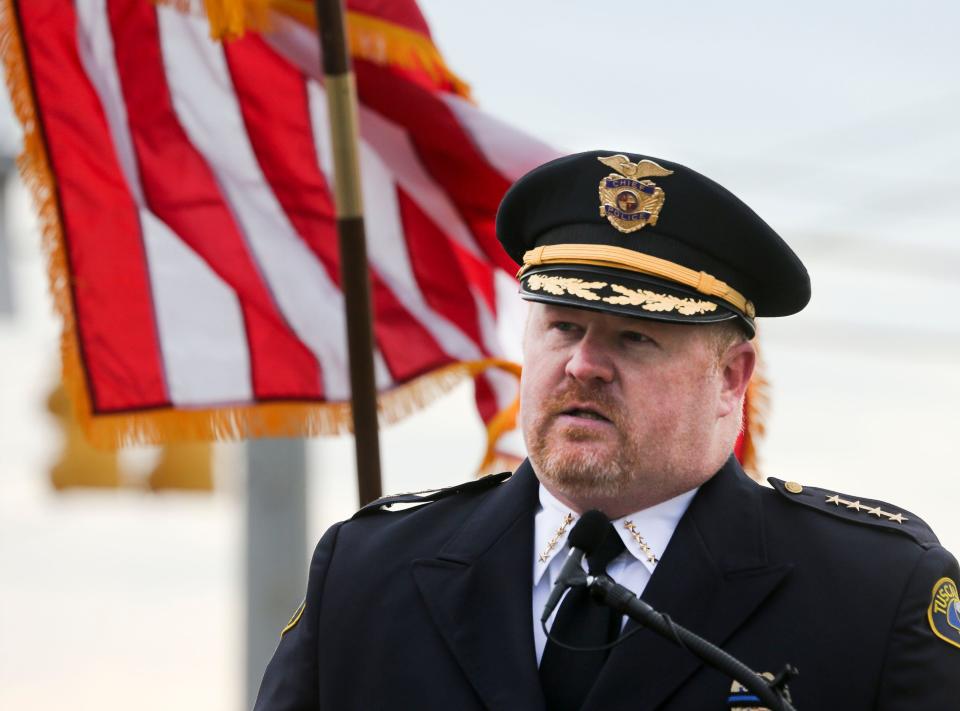Tuscaloosa moves forward on draft proposal to limit new bars and taverns
In a called city of Tuscaloosa planning and safety committee meeting regarding concerns about bars, taverns and gastropubs, City Attorney Scott Holmes presented the draft of a resolution that would suspend new applications for those types of businesses through the end of the year.
More: Harry Hammonds, former owner of Harry's Bar and ex-UA basketball star, dies
After Tuesday afternoon's committee approval, the proposal will go before the full Tuscaloosa City Council on June 27. If adopted that evening, it will go into immediate effect.
The moratorium is not geographically limited, so no particular zone or area is being pinpointed, Holmes said.

"I personally don't want to be in the discretionary business of deciding yes this bar, no, not that bar," said District 4 Councilor Lee Busby, adding that a "deep breath" description fits.
"Let's pause, get our wits about us, and reassess. The people of the city, they're going to feed us what we need to know during that period; I guarantee it. The people in this city are going to let us know whether this is what they want, and want more of, or do they want more bars. They will let us know," Busby said.
This wouldn't affect existing establishments, nor disallow licensing for new restaurants, or restaurants with bars, Holmes said. Nor would it apply to changes of ownership for existing businesses, though any new owners would still have to apply for alcohol licensing.
Bars must have lounge-liquor licenses, and those under 19 cannot enter at any time. Restaurants cannot restrict access by age, cannot charge a entrance fee, must keep kitchens open, and close, most nights, by 10 p.m.
The gastropub designation was created for venues that operate like a bar after 10, as long as they meet other restaurant criteria earlier in the day. A recent example would be the old Wilhagan's, a site on Fourth Street that many years before was operated as Lee's Tomb. It held the gastropub designation through a newer incarnation as Hunt Club Honky Tonk, but early this year, the city denied a newer concept, called Grandstand, the conditional use permit, due to concerns about the space's 375-person occupancy level.
If adopted, the moratorium would extend through the end of the year, and could be either ended early, or extended beyond, with four votes from the seven-member council. With no action, it would sunset after Dec. 31.

The measure has been urged forward by Chief Brent Blankley of the Tuscaloosa Police Department, in part due to serious staffing shortages. Even after the 20 officers currently in training hit the streets, TPD will still have 34 vacancies. The late night/early morning hours many bars operate, until 2 a.m., are when fewer officers are available, so the department's stretched thin, and paying out overtime.
"What we can't do is keep spreading our force over and over again, so I'm asking you, I'm pleading with you" to take the pause to reevaluate, Blankley said. If other bars, taverns or gastropubs continue to open, "I'm afraid it's going to create problems in areas that we do not have problems, and that's going to take our police out of your neighborhood."
All the council members, and Mayor Walt Maddox, seemed on board. Council President Kip Tyner, who represents District 5, noted that a similar resolution on mega-apartments turned out well.
The city voted in January 2019 for a moratorium on multifamily mega complex developments of 200 bedrooms or more, which lasted into May 2020. Maddox sought to extend that by executive order, but a lawsuit threatened by an out-of-state developer caused reconsideration, so as not to waste city resources. Maddox noted that while the University of Alabama had grown by about 8,000 students in the previous decade, 14,000 new apartment bedrooms had been added, creating a drain on services and infrastructure.
![Bottles of alcohol sit in a bar in Tuscaloosa. [Staff Photo/Gary Cosby Jr.]](https://s.yimg.com/ny/api/res/1.2/NlIWDiv8ip2eNFRbp3CL6w--/YXBwaWQ9aGlnaGxhbmRlcjt3PTk2MDtoPTY0MA--/https://media.zenfs.com/en/the-tuscaloosa-news/8551eaf56323e346e1b4f2650c136857)
Busby pointed out that the bar, tavern and gastropub moratorium, if adopted, only begins to address public safety concerns.
"What we're talking about now is to stop adding to the problem," he said.
Councilors expressed interest in shortening bar hours. Maddox presented a worksheet outlining how other SEC cities have addressed that concern.
"I'm in favor of rolling those (drinking) hours back," said Councilor John Faile, of District 6. Faile is known as the council's most frequent opposition to alcohol; his was the sole "No" vote on last summer's approval of beer and wine sales at UA's Bryant-Denny Stadium.
Reach Mark Hughes Cobb at mark.cobb@tuscaloosanews.com.
This article originally appeared on The Tuscaloosa News: Proposed moratorium would limit new bars, taverns in Tuscaloosa

